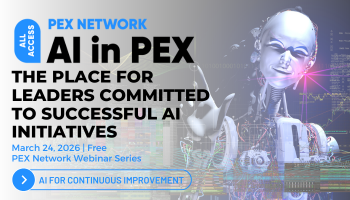10 RPA tools for achieving process excellence
Discover leading robotic process automation (RPA) tools that can help your organization streamline repetitive tasks
Add bookmark
Robotic process automation (RPA) is technology that uses software ‘robots’ (bots) to automate repetitive, rule-based tasks within business processes. For years, RPA has been a stalwart of process excellence strategies.
The bots mimic human actions in digital systems, handling tasks like data entry, form filling and report generation, aiming to increase efficiency, reduce errors and free up human workers for more complex, strategic tasks.
The global RPA market is projected to reach a value of US$46.66 billion by 2034, growing at a CAGR of 23.13 percent, according to separate data from The Research Insights. The RPA market is being driven by businesses’ need for improved operational efficiency and cost savings.
“The RPA market is at a pivotal inflection point,” said Arthur Villa, senior director, analyst at Gartner. “In 2024, the market generated $3.8 billion in revenue representing a healthy 18 percent increase YoY. However, (artificial intelligence) AI innovations have introduced alternatives to traditional deterministic RPA along with the rise of enterprise automation platforms such as business orchestration and automation technologies (BOAT).”
Here are 10 RPA tools that can help businesses achieve process excellence.
Join the PEX Network community

Don't miss any news, updates or insider tips from PEX Network by getting them delivered to your inbox. Sign up to our newsletter and join our community of experts.
Learn More1. Appian RPA
Appian RPA is a cloud-native technology that integrates with Appian’s full-stack automation platform, which includes workflow and AI, to help organizations increase efficiency, reduce errors and free up human workers for more complex and strategic initiatives.
2. Automation 360
Automation 360 is a cloud-native, RPA platform developed by Automation Anywhere, designed to automate business processes across various systems and applications. It combines an intuitive, browser-based user experience for business users to automate tasks with robust tools for developers to build complex automation solutions.
The platform integrates AI and machine learning, offering capabilities for intelligent automation, pre-built bots and cloud-powered scalability to enhance efficiency, reduce costs and free up human employees for higher-value work.
3. IBM RPA
IBM RPA is an enterprise solution helps businesses improve efficiency and productivity by handling routine activities like data entry and processing, freeing up employees for higher-value work. Key features include a low-code platform for bot development, embedded AI capabilities for more intelligent automation and flexible deployment options (cloud or on-premises).
4. Laiye
Laiye provides an RPA solution that integrates advanced AI and optical character recognition (OCR) for data processing and offers a comprehensive platform for building, deploying and managing these automation workflows. Key features include pre-set commands, AI-driven data extraction, cross-system compatibility and a user-friendly interface to enable human-computer collaboration.
5. Microsoft Power Automate
Microsoft’s RPA solution, Power Automate, a comprehensive platform that helps businesses speed up processes, reduce errors and free up employees for higher-value work by automating tasks like data entry, file manipulation and form completion across various applications, even those lacking APIs.
6. SAP Intelligent RPA
SAP Intelligent RPA enables users to design process automations within the Cloud Studio by creating end-to-end workflows and generate packages into the Cloud Factory powered by SAP BTP to configure and execute these packages with agents. Agents running on workstations can work as a digital assistant (attended automation) or as a digital worker (unattended automation).
SAP Intelligent RPA also enables business users and technologists to become citizen developers. With powerful yet intuitive low-code and no-code capabilities, the solution supports users in driving automation by tapping into the expertise of citizen developers.
7. Pega RPA
Pega RPA by Pegasystems provides a complete set of tools to build, deploy and manage bots to automate tasks across different software applications. It streamlines workflows by acting as a bridge between systems to accelerate processes, reduce errors and free up employees for higher-value work.
Pega RPA uses tools like Pega Robot Studio for creation, Pega Robot Runtime for execution and Pega Robot Manager for centralized control and monitoring of attended and unattended bots.
8. RPA Hub
ServiceNow’s RPA Hub is the centralized platform within the ServiceNow ecosystem for managing, monitoring and orchestrating RPA bots and workflows. It acts as a control center, enabling administrators to build, deploy and manage automated tasks across various business applications, including those without APIs, by providing tools to design automations, monitor bot performance and ensure compliance.
9. SS&C Blue Prism
SS&C Blue Prism is an enterprise RPA and intelligent automation (IA) platform that emulates human actions across various existing applications. The software allows businesses to accelerate digital transformation, increase efficiency and improve accuracy through solutions delivered via cloud or on-premise environments.
10. UiPath RPA
The UiPath RPA platform provides tools for designing, deploying and managing software robots through a user-friendly, visual drag-and-drop interface, allowing users to automate processes without extensive coding.
All Access: AI in Process Excellence 2026

Don’t get left behind. Join us at All Access: AI in Process Excellence to learn from leading experts, thought leaders, and practitioners who are on the ground experimenting, researching, and learning how to best use AI. They will share their secrets with you for free. And you’ll have the opportunity to network with fellow professionals as we navigate this new world. Register now to save your spot.
Register Now












